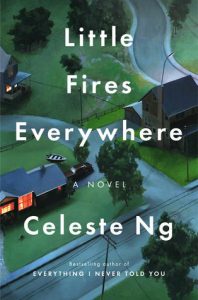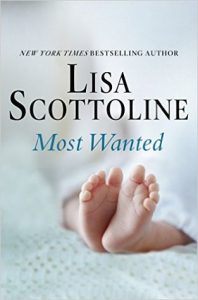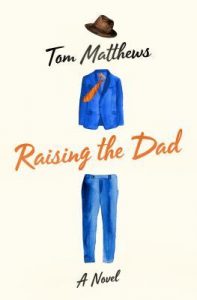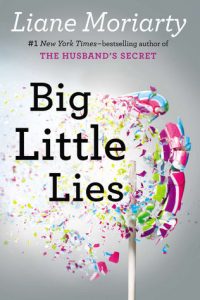She looked at the ad for a long time.
Small house $1,000 / month. Follow the path into the woods at mile marker 72.
It had been up in front of Dale’s Grocery for a week. A jeep was needed to follow the path into the woods.
So she bought a jeep. A Wrangler, 13 years old, bright orange. Stan would have loved it. The ache balled up in the center of her chest. She lay down and kneaded the ache flat. It was easier to bear then. Nine months. All her friends had disappeared, as though Stan’s death might be contagious.
Mile marker 72 stood at the end of a dirt pathway into the forest. Without hesitation, she drove right in, until the path opened up into a small meadow of wildflowers in various hues. In the middle sat a small house with a scalloped roofline, like a tiny Victorian. A man sat in a rocking chair on the front porch. He approached her car when she drove up. They exchanged pleasantries and went inside. She exclaimed aloud her delight and signed the lease laid out on the table.
Though the house came furnished, she placed accessories throughout to make it her own. The second week in her new home, she woke to singing and followed it to the source, the guest bedroom. The owner of the house was dressing in her home. When she knocked on the door jamb, he startled.
He called her Evelyn and told her to get on with it then. She snake-eyed him, but decided to get dressed before resolving the situation. The front door slammed and his singing moved into the woods behind the house. When she finished, she followed his voice to him. And she helped him carry the firewood he was cutting for the fireplace.
“Winter’s a’comin’,” he said with a grin and a wink. Speechless, she carried her armful dutifully. At the back of the house, he stacked his and then hers meticulously. They finished before sunset, he cutting it up and her stacking as shown. Then he left with promises to return later, told her “no worries.”
I should probably get a dog, she thought as she sat in her front room staring at the empty fireplace that night after supper alone. After locking all the doors and windows, she slept with her bedroom door locked. Three days later, she ran into her landlord in town, acting like her landlord, not calling her Evelyn, but informing her that he would be out of town for the next month, exploring several islands south of Australia.
It was a quiet month. The woods grew chillier, the wind whistled, and she used the fireplace almost every night. Just before the month was up, she visited the animal shelter to pick out a ferocious canine. But the one who called to her was a Jack Russell terrier mix. She took him home. He roamed the woods with her. She mailed her check as usual, seeing nothing of the landlord after the month was up.
Until a few weeks later, in a pub in town, she looked across the table and saw him come in the door. She waved. He tilted his head and narrowed his eyes as though he couldn’t place her. He halfheartedly waved and moved away to the left. She finished her wine and told her friends goodnight, grabbed the terrier and drove home.
The next day, at the grocery store, she saw her landlord again, and he asked if he should know her when she said “good day” to him. She stammered that he should, that she was his tenant. He shook his head and backed away. She put chairs against the doors that night and let the terrier sleep with her.
He arrived on foot the next day from the woods at the rear of the house, called out “Evelyn, I’m home” before he reached the back door and knocked. She peered out the kitchen window and hollered at him to say his name. He gave her a different name than the landlord’s. He even acted in a manner dissimilar to the landlord, yet it was him. She let him in and gave him tea. He slept in her guest room. The terrier slept on her bed.
Over the years, he remained a good landlord, making repairs in good haste, maintaining the house and yard. “Evelyn’s” guest never overstayed his welcome, routinely going off to explore parts of the world. The stranger met her one day, but never took a liking to her as the other two had, but still, he seemed harmless, keeping to himself when he saw her, nodding a quick hello. He eventually said a “How ya doin’, Evelyn” each time he saw her.
 Aubrey Ellis grew up learning to control the physically ravaging and emotionally draining interactions with ghosts who insist upon her assistance, ghosts who always leave tangible evidence of the encounter. As an adult, she’s settled into a position as a real estate columnist that gives her the opportunity to connect with and aid those who have passed on to continue their journey without too much damage to herself. Then she’s sucked into a decades old unsolved murder after new evidence emerges. Her reluctant partnership with fellow journalist Levi St. John takes her in new and unexpected directions, personally and professionally, and she comes fully into herself.
Aubrey Ellis grew up learning to control the physically ravaging and emotionally draining interactions with ghosts who insist upon her assistance, ghosts who always leave tangible evidence of the encounter. As an adult, she’s settled into a position as a real estate columnist that gives her the opportunity to connect with and aid those who have passed on to continue their journey without too much damage to herself. Then she’s sucked into a decades old unsolved murder after new evidence emerges. Her reluctant partnership with fellow journalist Levi St. John takes her in new and unexpected directions, personally and professionally, and she comes fully into herself. Photography artist Mia Warren moves to Shaker Heights, OH, bringing a new element into the staunchly middle-class, by the rules neighborhood, changing dynamics of two families, her own as a single mom, and her landlady Elena Richardson’s properly planned one as third generation Shaker Heights. Into this volatile blend is thrown teenage hormones, a King Solomon dilemma, and outside the box thinkers, culminating in “something’s gotta give.” Wisdom comes from unlikely sources.
Photography artist Mia Warren moves to Shaker Heights, OH, bringing a new element into the staunchly middle-class, by the rules neighborhood, changing dynamics of two families, her own as a single mom, and her landlady Elena Richardson’s properly planned one as third generation Shaker Heights. Into this volatile blend is thrown teenage hormones, a King Solomon dilemma, and outside the box thinkers, culminating in “something’s gotta give.” Wisdom comes from unlikely sources. Christine and Marcus want a baby so much that they use a sperm donor. Pregnant Christine sees their donor on the news being arrested for multiple murders. Against Marcus’ wishes, she visits him and helps him with his defense. She vacillates between thinking him innocent and guilty, believing he is her sperm donor and desperately wanting him to be a good person.
Christine and Marcus want a baby so much that they use a sperm donor. Pregnant Christine sees their donor on the news being arrested for multiple murders. Against Marcus’ wishes, she visits him and helps him with his defense. She vacillates between thinking him innocent and guilty, believing he is her sperm donor and desperately wanting him to be a good person. While looking in the attic for something, Cecilia finds a letter from her husband to be opened upon his death. Her life becomes intertwined with the secretary of the school who lost her daughter to murder 30 years and a young mom who separated from her husband and came home to care for her mother with a broken ankle. Cecilia discovers the limits of her endurance and her loyalty to her family.
While looking in the attic for something, Cecilia finds a letter from her husband to be opened upon his death. Her life becomes intertwined with the secretary of the school who lost her daughter to murder 30 years and a young mom who separated from her husband and came home to care for her mother with a broken ankle. Cecilia discovers the limits of her endurance and her loyalty to her family. John Husted picks up his brother from prison with his mother, whose dementia charms her into thinking he’s coming home from vacation. The good son, John cared for his mom after his dad died, is now building his own family, continuing to monitor his mom in her home, and settles his ex-convict brother in with mom. It’s no surprise then that his father’s colleague, succumbing to a terminal illness, turns over his clandestine responsibility to John, who now must make a final, impossible decision.
John Husted picks up his brother from prison with his mother, whose dementia charms her into thinking he’s coming home from vacation. The good son, John cared for his mom after his dad died, is now building his own family, continuing to monitor his mom in her home, and settles his ex-convict brother in with mom. It’s no surprise then that his father’s colleague, succumbing to a terminal illness, turns over his clandestine responsibility to John, who now must make a final, impossible decision. Someone died at the Pirriwee Elementary parent’s trivia night. Just who, how, and why are explored throughout the story, beginning months earlier with new mom Jane and son Ziggy introduced to the kindergarten community. Madeline and Celeste befriend her as their frenemies waylay her with accusations. Secrets worm their way out painfully slowly, personalities clash, and life decisions are made. The parents of Pirriewee Elementary learn more about each other this year than they ever wanted to know: bullying, adultery, abuse, etc.
Someone died at the Pirriwee Elementary parent’s trivia night. Just who, how, and why are explored throughout the story, beginning months earlier with new mom Jane and son Ziggy introduced to the kindergarten community. Madeline and Celeste befriend her as their frenemies waylay her with accusations. Secrets worm their way out painfully slowly, personalities clash, and life decisions are made. The parents of Pirriewee Elementary learn more about each other this year than they ever wanted to know: bullying, adultery, abuse, etc.